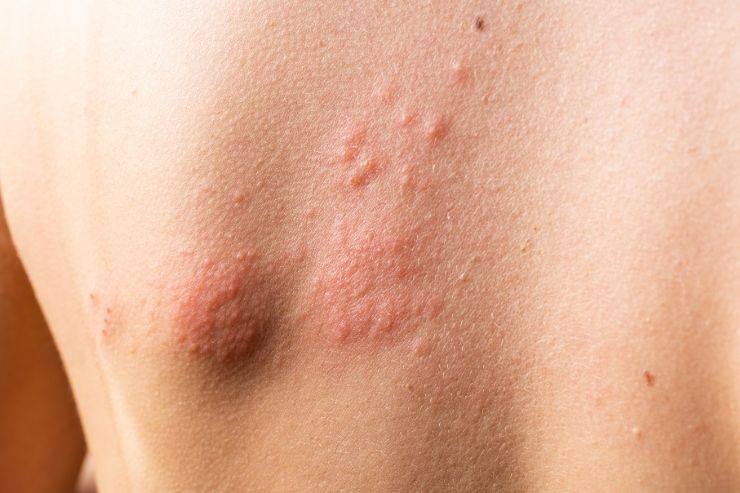
Hives occur when the body’s immune system releases histamine and other chemicals into the bloodstream in response to an allergen or irritant. This reaction causes blood vessels in the skin to leak, leading to swelling and the characteristic red, itchy welts.
Common triggers for hives include:
Allergic Reactions: Foods (such as nuts, shellfish, eggs), medications (like antibiotics, aspirin), insect stings, and latex are common allergens that can trigger hives.
Environmental Factors: Exposure to pollen, animal dander, mold, or dust mites can lead to hives in sensitive individuals.
Physical Stimuli: Cold temperatures, heat, sunlight, pressure on the skin (like from tight clothing), and exercise can all cause hives in some people.
Infections: Viral infections such as the common cold, hepatitis, or bacterial infections can sometimes lead to hives.
Stress: Emotional stress or anxiety can trigger hives or exacerbate existing symptoms.
Chronic Urticaria: In some cases, hives may last for more than six weeks, a condition known as chronic urticaria. The exact cause of chronic urticaria is often unknown, making it more challenging to treat.
Symptoms of Hives
Hives can vary in appearance and severity, but common symptoms include:
Red or Skin-Colored Welts: These welts can range from small spots to large patches and often appear suddenly.
Intense Itching: The itching associated with hives can be severe and may worsen with scratching.
Swelling: Hives may cause swelling in the affected area, and in some cases, this swelling can extend beyond the welts themselves.
Migratory Nature: The welts may change in size, shape, and location, often disappearing from one area and reappearing in another within a short period.
Angioedema: In some cases, hives can be accompanied by angioedema, a deeper swelling of tissues beneath the skin, particularly around the eyes, lips, and throat. Angioedema can be more serious and may require immediate medical attention if it affects breathing.